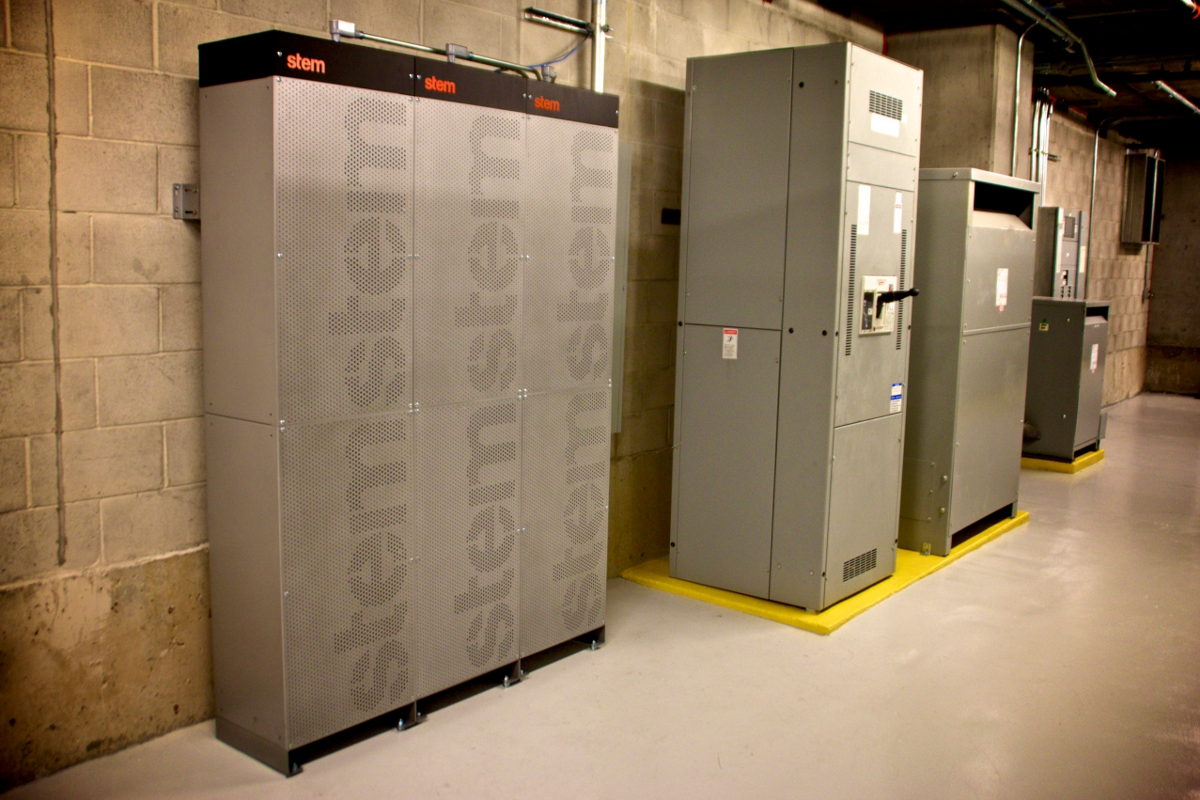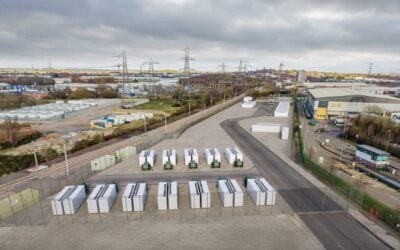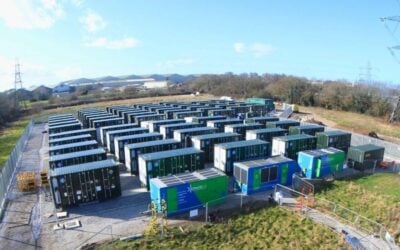
Vertically integrated energy company Scottish Power has submitted a proposal to extend recently introduced battery de-rating factors in Britain's Capacity Market to storage included in demand side response bids in what has been described as a latest attack on the battery market.
The utility submitted the proposal on 13 March, which would create DSR technology classes with different minimum durations, and apply the extended performance testing to these newly created groups.
Enjoy 12 months of exclusive analysis
- Regular insight and analysis of the industry’s biggest developments
- In-depth interviews with the industry’s leading figures
- Annual digital subscription to the PV Tech Power journal
- Discounts on Solar Media’s portfolio of events, in-person and virtual
Among these would be a 'Storage DSR' class, which National Grid’s electricity market reform delivery body would be obligated to consult on applying the lower de-rating factors to.
Scottish Power argues that under current market rules if a DSR CMU (Capacity Market Unit – “a unit of electricity generation capacity or electricity demand reduction that can then be put forward in a future Capacity Market auction” according to the government definition), consisting of energy storage, is located behind the meter (BTM) it will not be subject to duration de-rating.
“This risks over-rewarding such storage and increasing costs to consumers. It is also contrary to the CM policy of technology neutrality and unfair to other market participants,” the company stated.
It adds that without such a change, storage developers are able to bypass the extended performance tests which are applied to capacity storage generating technology classes by going behind the meter.
The proposal suggests that each applicant for an unproven DSR CMU “must include details of any known intention to use a generating unit that is categorised as a DSR storage technology class”, a suggestion that has been refuted by those offering behind the meter battery services for DSR.
Setting ‘a dangerous precedent’ for DSR
“It's a bit of a non-starter because the whole point of DSR is that it is there for any flexibility assets,” Johnathan Ainley, head of public affairs & UK programme manager at aggregator KiWi Power, told our UK sister site Clean Energy News.
“When you're bidding with unproven DSR CMU the whole point of it is that you don't necessarily know what the composition of that CMU is going to be at the time that you're going to bid it in. How can they possibly apply a different de-rating factor to a portion of that CMU?”
“In terms of this proposal it's not one we would support at all. I think it could potentially set a dangerous precedent more generally around DSR,” he added.
Origami Energy, another aggregator which won contracts in both the recent auctions using DSR without storage included, said if the proposal was enacted, it would reconsider the use of battery storage for DSR in the capacity market in the future.
“We do behind the meter storage development and we were expecting to be able at some stage to put some storage assets into DSR capacity market contracts. We'd need to look again at the economics, it's certainly a detrimental impact on a purely financial basis as it was for the new build which at the time of pre-qualification was attracting the fuller de-rating,” said Nick Heyward, head of energy storage at Origami.
Scottish Power has defended its proposal by claiming it would merely extend the decision to cut de-rating of battery projects by as much as 80% in the recent CM auctions depending on their discharge duration.
A spokesperson for the company told CEN: “Generally speaking, we think that the same duration de-rating should apply to batteries whether they are behind or in front of the meter. In the longer term, if other forms of DSR can only deliver for periods less than that of a typical system stress event, then it should be de-rated accordingly so as to ensure that security of supply is maintained.”
Heyward added that while the move would be detrimental to energy storage and getting them financed, it would fall in line with the original intentions of the CM to secure security of supply.
“At the time a lot of this legislation got put in place, there was no such thing as energy storage on a commercial scale so all of these mechanisms and rules around the CM, and it's very similar in the ancillary services market, are designed with generation in mind.
“So a lot of these tweaks and policy changes are starting to correct that and the unfortunate thing to date is actually quite a few of those have been corrections that are detrimental to storage,” he said.
However, the decision to cut these factors for large scale in front of the meter batteries from the government and Ofgem was largely seen as a response to industry pressure from incumbents using competing technologies.
Following the decision, many have viewed the business case and certainty offered by a 15 year contract within the T-4 auctions as under threat from reduced revenues.
However, DSR is only able to secure one year contracts in the CM and so Scottish Power’s proposal to effectively pursue cuts to available revenues for storage acting as DSR may only impact a small amount of the entire revenue stack of a behind the meter storage facility.
Moving beyond the Capacity Market
Flexitricity, which won several one-year contracts in both the T-1 and T-1 auctions held in January, told CEN that opportunities for greater revenues lie outside of the CM mechanism.
Chief executive Ron Ramage said: “The DSR community will continue to make a significant contribution towards the security of supply.
“Whilst we recognise the importance of secure bankable revenue streams, it should be recognised that DSR can only secure a one-year Capacity Market Agreement at auction and the total income is a relatively small part of the revenue stack available for these assets. Battery storage as a technology is flexible and can access far more valuable revenue streams than the Capacity Market, with dynamic frequency response and DUoS/TNUoS avoidance amongst the mainstream options.”
Having recently secured a gas and electricity supply licence, promising to unlock revenues within the Balancing Mechanism, Ramage added: “There is also a significant opportunity for these assets to be traded in the Balancing Mechanism, securing revenues post-gate closure; you may remember that the 'Beast from the East' (recent severe cold weather snap) led to Balancing Mechanism prices that reached £900/MWh (US$1264.6/MWh); there is no reason why behind-the-meter storage can’t participate here, it’s just a question of market access, something that Flexitricity will be able to provide from this autumn.”
Heyward added that there was “definitely a possibility” that storage developers could move away from the CM if revenues continue to be cut.
“For the new build assets where those de-rating factors already applied, it became such an insignificant part that actually your pricing behaviour in the auction becomes a bit irrational because it barely moves the needle. So I think the same could happen.
“There's quite a big administrative and legal overhead in just going through the CM process and certainly for a one year contract if it did have such limited value I would question whether people would even go to the effort of going through the process if it was the same level of de-rating,” he said.






